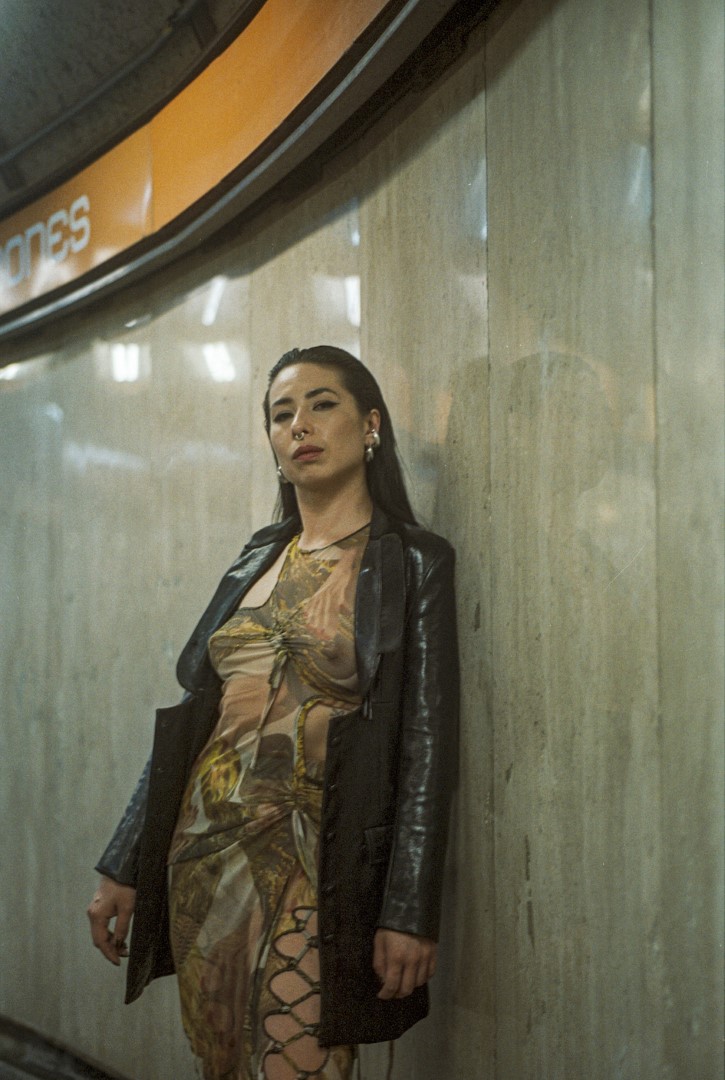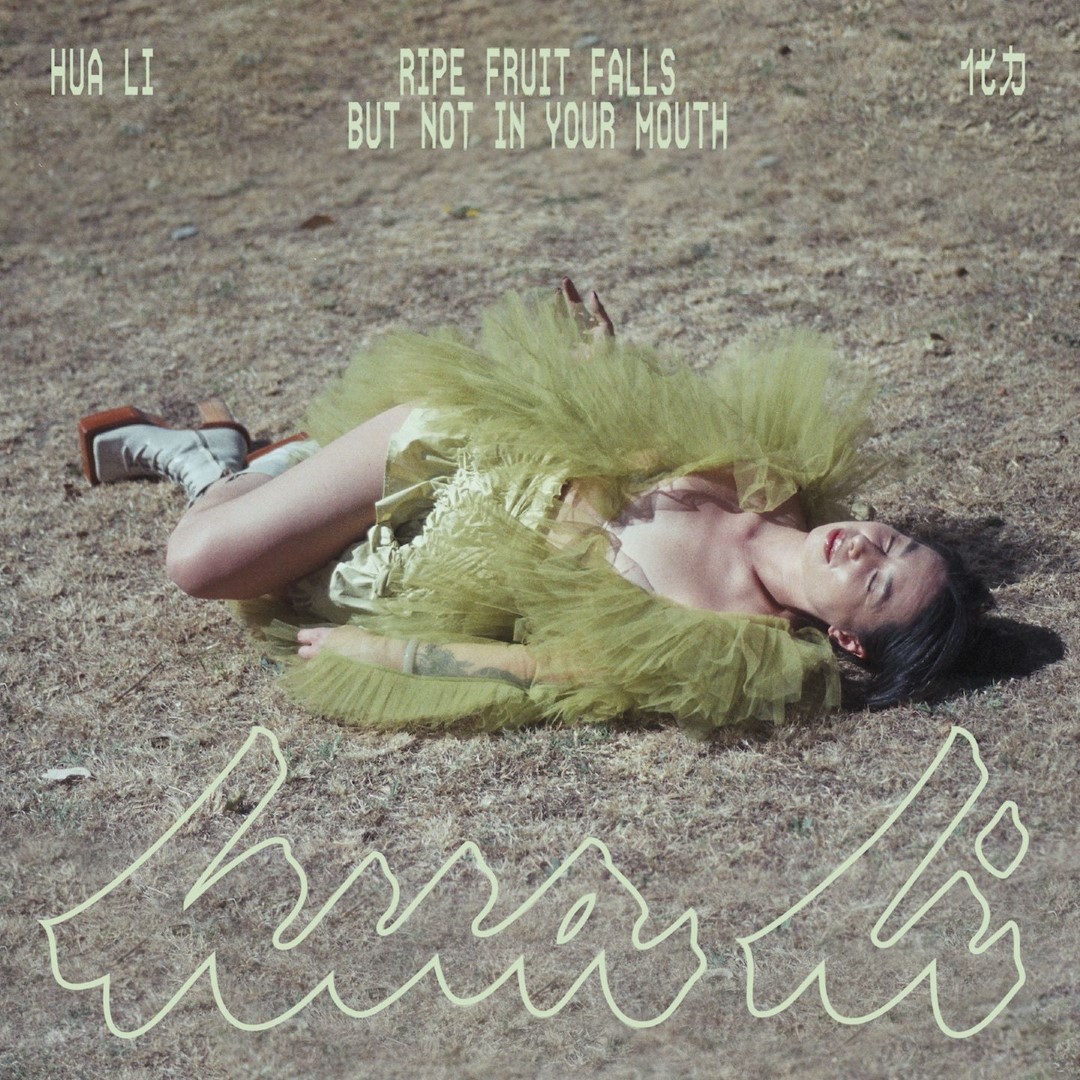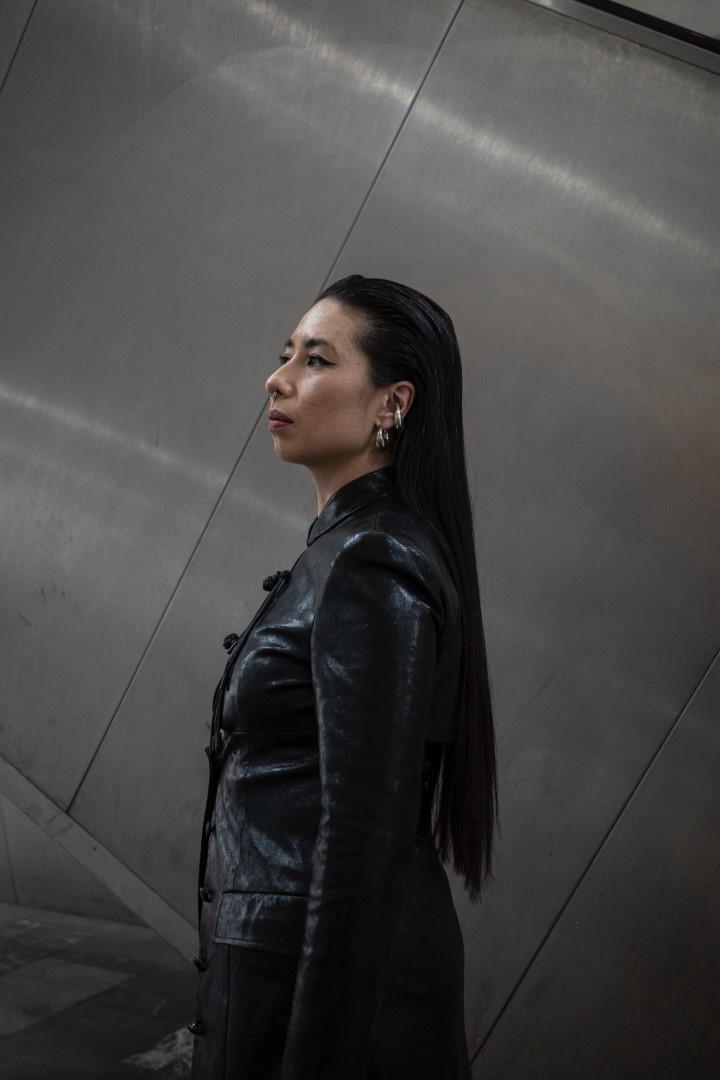Hua Li

Hua Li is a Montreal-based rapper, DJ and electro artist. Her debut record, Dynasty (2019), acted as an origin story for the Chinese-Canadian, with lyrics that frequently navigated the painful precipice of expectations – romantic, aspirational, and familial – dashed by reality. Five years later, today marks the release of Hua Li’s sophomore album, ripe fruit falls but not in your mouth, featuring tracks that speak to similar themes of empowerment underpinned by fragility and searing self-reflection offset by self-sabotage. As with Dynasty and her much-praised pandemic release ‘Yellow Crane’, Hua Li’s often deeply personal, always relatable rap comes across as part-confession, part-therapy set to a buzzing, mellifluous backdrop of delicate melodies and lo-fi hip-hop beats.
We caught up with Hua Li to mark the release of ripe fruit…, the pressures of being a self-professed ‘rapper of your heart’, and more…
FAULT: Tell us a bit about your background – how did you get into music?
Hua Li: I was a rare kid that loved piano lessons and genuinely enjoyed spending time practising. I grew up in the classical music world, found my way into jazz and musical theatre as a teen and moved to Montreal at 17 to attend jazz school. Through all of that, I wrote my own songs, so at some point it felt natural to become a recording artist and work those songs into albums.
Name some of your key inspirations, musical and/or otherwise?
Little Dragon, Bjork, Kari Faux, bbymutha, Erykah Badu, Rochelle Jordan, Kelela… I love reading and the poetry of Jorie Graham and Mary Oliver is always good for a creative nudge. Taking in theory and criticism about culture, communication and the internet also inspires me and drives me to keep making music that is relevant and speaks to the moment. Most of all, the Montreal scene, whether it be musicians like Gayance and Janette King or artists like Danica Olders or party crews like Afrotonik, there is always something for me to find inspiring in the city.

At its core, ripe fruit… has an interesting juxtaposition of being a dance-ready record ripe for hedonistic indulgence that also tries to peel back layers of bravado to reveal the softer vulnerability at its core. That dichotomy runs all the way through from the overall theme, to the lyrics, to the production overall, to the cadence and structure of individual tracks. How did you and [producer] Alex [Thibault, aka Gloze] achieve that: did you start with the overall idea and extend it down into the individual tracks and details, or was it the other way around?
Almost always, I start my songs at the piano or wurlitzer. Underneath almost all the tracks in ripe fruit, emotional piano ballads lie hidden. I take the initial keyboard demos and create an electronic version that invariably takes a lively and dancier form, and that point is usually when I hand my demos over to Alex. He is a rhythmic genius, always able to see through the layers of production I give him to the most incisive drums and synth bass lines.
From the outside, it looks like the process of recording an album is the total opposite of a live DJ-set, in that the former feels more meticulously arranged, whereas (I guess) you have to be a lot more responsive and fluid with the latter. Is that fair to say? Which do you prefer?
I would tend to agree – I look at DJing as something very ephemeral and responsive to the moment. I’ve been laughing at myself recently because it’s been an embarrassingly long time since I updated my USBs for DJing and yet every time I go to mix these same old tracks together I end up doing it differently depending how I’m feeling, what I’m hearing, what the crowd is doing. In that way, it can be a little more gratifying than writing and recording an album because if something isn’t working I can change things up right away. I’m not particularly fast when it comes to putting albums out, and a lot of the process is a guessing game for me – I really have to stay committed and confident in what I’m trying to do because there are many moments of doubt that arise for me when I’m working on a record: is this coherent? Cheesy? Am I ruining my career? I never really know until it’s done and out in the world.
What has been the highlight of your career so far?
Working with Gayance on co-writing for her debut album, Masquerade. That experience was really validating for me and has made me so much more confident that my musical perspective and voice are valuable and have meaning.
Who would you most like to collaborate with and why?
Anyone in my list of inspirations – winning the confidence of an artist you truly admire is maybe the greatest achievement for any musician.
As much as I appreciate the ‘reader-response’ (listener response?) philosophy some artists have with their music, as a music journalist, wanting to know all about the creator and their work is pretty hard-wired… With that in mind, I want to give a shout out to your Substack, ‘Riding the Yellow Crane‘, in which you give real insight into your writing process. As everyone who’s been to therapy knows, sharing is hard, so I guess doing it both musically and in prose (and in therapy) must be daunting to say the least…! You allude to the self-care you need to maintain in order to keep doing that, but do you have a limit/boundary for how much of yourself you’re prepared to give?
To me, all of these mediums are forms of communication, and in some way, the kind of sharing you describe is a form of self-care. As people, I believe that we seek understanding about ourselves and the world around us through communication. Sharing is very cathartic for me and expressing parts of my creative process in writing helps me understand what I’m trying to communicate through my music more consciously. That being said, I’m extroverted and I need to put limits to how much connection and socialising and communicating I do. When I start to repeat myself too much and stop listening to others, it’s time to be in solitude and process what I’ve learned and try to let it contribute to what I already know.

If you weren’t making music, what would you be doing?
I’d like to think that I’d be doing my current day job (label manager) and night job (production manager for a handful of MTL concert promoters) but I probably only have these jobs because I make music. My mom still reminds me from time to time that there is still time to go to law school…
ripe fruit… is out today – congratulations, by the way! – so what’s the plan for the near future? What are you most looking forward to now the record’s out?
Thank you! I’m heading on tour supporting Land of Talk in the US and Canada through the month of April! I really love playing live, so getting to tour these new songs is the thing I always most look forward to when I release new music. I just love hanging out at venues and chatting with people that still care to see live music – it’s part of why I continue to work in nightlife DJing and PMing. Land of Talk has such great fans so I know these upcoming shows are going to feel great.
What is your FAULT?
It’s my fault that I’ve glamourised having three jobs.